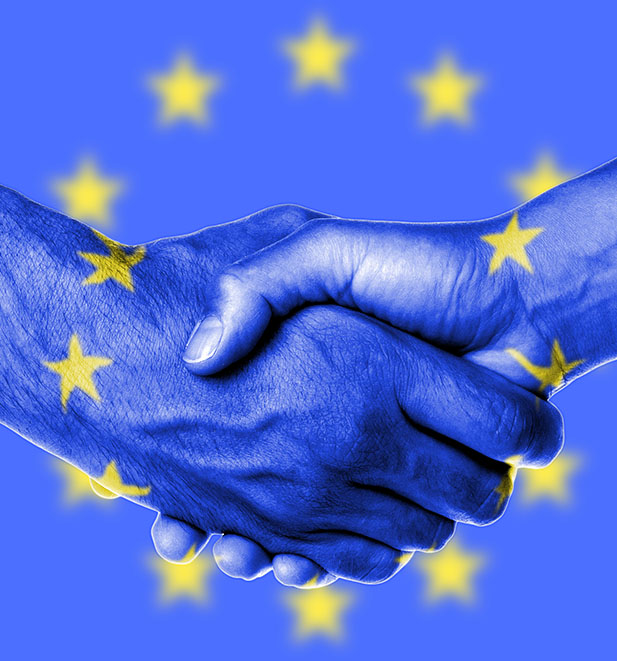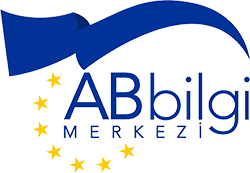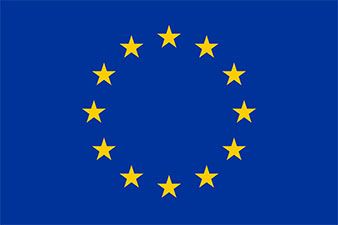Cyprus joined the European Union in 2004. Since then, the EU has supported the island’s two communities as they work towards a final settlement to end decades of division.
To pave the way for the reunification of the island, one of the aims of the EU aid has been to bring the two communities closer together economically.
Much of the EU’s support to Cyprus therefore focuses on developing the economy of the island’s Turkish Cypriot community. From its introduction in 2006 to the end of 2023, the EU’s Aid Programme for the Turkish Cypriot community has provided around EUR 688 million in financial support.
The programme supports projects in areas including but not limited to agriculture, environment, infrastructure, civil society, community development, cultural heritage, education and telecommunications, as well as the development of the private sector, the labour market, crossings, traffic safety and energy. It also provides information about EU policy and encourages legislative alignment with the EU in line with the Acquis Communautaire.

Aid Programme funding for 2006-2023 according to objective
Total: EUR 688 Million

This support has achieved positive impacts in a range of different areas:
KEY SUCCESSES (2006-2024)
PROMOTING SOCIAL AND ECONOMIC DEVELOPMENT
Support to Small and Medium-Sized Enterprises (SMEs)
Through the EU Aid Programme, the European Commission continued to promote economic integration and development by supporting small and medium-sized enterprises (SMEs) in the Turkish Cypriot community, with a focus on competitiveness and innovation. In recognition of the central role of SMEs in the local economy, the multiannual ‘eunite: SME’ programme was launched in 2024 to help businesses meet EU standards, foster innovation, and encourage entrepreneurship. In 2024, 45 companies trading or interested in trading across the Green Line received nearly EUR 2 million in grants. Since the start of the Aid Programme, more than 2,550 SMEs have been supported, with total grants exceeding EUR 27 million.
Evidence Based Policymaking
In the area of economic convergence, cooperation with the World Bank continued in 2024, focusing on macroeconomic monitoring, statistics, trade facilitation and improvements to the business environment in the Turkish Cypriot community. Three key assessments were completed, examining fiscal policy impacts, poverty levels and living standards. The findings, discussed with relevant stakeholders, highlighted key challenges and opportunities for the economy and supported more evidence-based policymaking.
Market Surveillance and Alignment with EU Standards
The technical assistance project on market surveillance, launched in 2022, continued in 2024 with the aim of strengthening practices in metrology, standardisation, accreditation and conformity assessment. Working closely with the private sector, the project helped improve the business environment in the Turkish Cypriot community and supported compliance of locally produced goods with EU standards. Additional cooperation was established with experts under the TAIEX EU instrument to further support the uptake of EU aligned standards.
Halloumi/Hellim
In the context of implementing the EU PDO scheme for ‘Halloumi’/‘Hellim’, EU funded technical assistance continued to support farmers, dairies and relevant local bodies in the Turkish Cypriot community to meet EU requirements. By the end of 2024, four cheese producers and 24 farms were certified under the PDO scheme. Support also covered animal health and disease control in line with EU standards, and preparations began for a pilot sheep and goat breeding programme to improve milk availability and quality. In 2024, EUR 2.6 million in grants were awarded to 21 farms and three dairies to support compliance with EU standards and increase production capacity. These efforts were complemented by meetings of the bicommunal EU Informal Working Group on Halloumi/Hellim.
Rural Development and AgriBusiness Support
Support to farmers and food business operators forms part of the EU’s broader efforts to improve rural livelihoods and development in the Turkish Cypriot community, recognising their economic and social importance. In 2024, the multiannual eunite: AgriBusiness initiative was launched to strengthen agricultural know-how in line with the EU Agricultural Knowledge and Innovation Systems (AKIS) approach, enhance farm advisory services, and promote innovation and sustainable growth in rural areas.
Education and Skills Development
The European Commission continued its support to education in the Turkish Cypriot community, with a strong focus on vocational education and training (VET), lifelong learning and teachers’ professional development. Curriculum packages for 29 occupations were developed and piloted in nine schools, alongside focus groups and interviews involving 114 teachers and 88 students. Guidebooks covering cross-cutting areas such as health and safety, entrepreneurship, environmental protection and foreign languages were developed and distributed to schools. In addition, a comprehensive training needs assessment for teachers identified four priority areas: effective teaching and learning, school leadership, inclusive education, and safe schools and crisis management, leading to the development of targeted training modules.
Green Line trade
In 2024, the European Commission continued to support trade across the Green Line, enabling new types of processed food and materials that come in contact with food to be successfully traded and placed on the EU market. Strong interest from the business community in complying with EU standards was reflected in increased engagement with the EU One Stop Shop, which offers tailored guidance, support and networking opportunities for Green Line trade. Since its launch in 2023, the EU One Stop Shop has provided tailor-made support to 85 traders.
DEVELOPING AND RESTRUCTURING OF INFRASTRUCTURE
Supporting Local Infrastructure Development
The United Nations Development Programme (UNDP) continued to implement the EU’s Local Infrastructure Facility through ongoing contribution agreements signed with the Commission for a total of EUR 36.7 million. The facility provides support for preparing and implementing relevant local infrastructure investments. This included replacing the ‘Trunk E’ sewage pipeline in the Nicosia urban area, installing water tanks and automatic pumping systems in Lefka/Lefke, providing sports facilities and equipment in four schools, and deploying photovoltaic solar power systems in Lefka/Lefke and at the Kormakitis Centre for Cooperation.
In 2024, remedial works to the Famagusta sewerage network were successfully completed, with no defects reported by the end of the notification period. A pre-feasibility study for a bicommunal solar power plant in the buffer zone was also completed and presented to both communities. Challenges related to landfill operations in the Turkish Cypriot community persisted, and while deficiencies remained unaddressed in 2024, the Commission reiterated its commitment to support corrective actions once appropriate management decisions are taken.
Environmental Protection and Capacity Building
To improve and protect the environment, the European Commission continued to deliver capacity-building activities for the Cypriot communities in 2024. Training courses and workshops reached hundreds of environmental professionals, covering areas such as environmental management systems, data analytics, air quality, circular economy and forest management. In addition, the Cyprus Environment Symposium held in December 2024 brought together environmental leaders from both communities to discuss shared challenges and solutions.
FOSTERING RECONCILIATION, CONFIDENCE-BUILDING MEASURES, AND SUPPORT TO CIVIL SOCIETY
Committee on Missing Persons
The Committee on Missing Persons, supported through a contribution agreement with the United Nations Development Programme, continued its field and laboratory work in 2024. By the end of the year, 1,186 sets of remains had been exhumed out of 2,002 missing persons, with 1,051 individuals identified and returned to their families. In 2024, a new EUR 2.6 million contribution agreement was signed to fund the Committee’s operations in 2025. Between 2006 and 2024, the European Union contributed EUR 41.1 million, accounting for around 80% of the Committee’s total funding over this period.
Cultural Heritage
Protecting cultural heritage remained a key element of reconciliation and confidence-building measures supported under the EU Aid Programme, in close cooperation with the bi-communal Technical Committee on Cultural Heritage. Between 2006 and 2024, the cultural heritage programme received approximately EUR 30 million in EU funding, supporting the conservation, protection or restoration of 178 cultural heritage sites across the island.
United World Colleges scholarship scheme
The EU scholarship scheme for Cypriot youth, implemented with the United World Colleges, continued to promote education and reconciliation by enabling nine Greek Cypriot and nine Turkish Cypriot students to study at United World Colleges. Since the scheme’s establishment, 64 young people from both communities have completed the two-year International Baccalaureate programme. The scheme also supported cross-community youth engagement activities and short courses, empowering young people to contribute positively to their societies and promote peace and sustainability.
Support to Civil Society
Support for civil society continued in 2024 through the Civic Space project, which strengthened the capacity of civil society organisations, promoted an enabling environment, and encouraged networking and joint actions with Greek Cypriot and other EU civil society partners. Civil society organisations implemented projects across key areas including human rights, environmental protection, youth development, labour and patient rights, media and peacebuilding.
In 2024, a EUR 1.7 million grant was signed to support the Cyprus Dialogue Forum, fostering structured dialogue and joint initiatives between stakeholders from both communities in support of the settlement process. In addition, a EUR 2.25 million call for proposals was launched to support civil society actions, with a focus on human rights, the environment and bi-communal confidence-building. The Human Rights Platform association also continued to implement its EU-funded direct grant, with activities addressing gender equality, anti-human trafficking, refugee rights and LGBTI+ rights.
BRINGING THE TURKISH CYPRIOT COMMUNITY CLOSER TO THE EU
Scholarships and Academic Mobility
Since 2022, the European Commission has partnered with the Goethe-Institut to implement the EU Scholarship Programme. In the 2023/2024 academic year, 126 scholarships were awarded to Turkish Cypriot students to study at universities in EU countries, contributing to closer ties between the Turkish Cypriot community and the EU. An alumni strategy was also developed to support networking, engagement and skills development through dedicated events.
Since 2007, more than 2,275 scholarships have been awarded, covering over 100 universities in 23 EU countries. The programme supports undergraduate, master’s and doctoral students, as well as researchers and professionals, by enhancing academic, language and professional skills across EU Member States.
Communication and Visibility
The EU Infopoint, managed by the EU Programme Support Office together with the Commission Representation in Cyprus, continued to play a key role in raising awareness of the EU Aid Programme and the EU’s contribution to the settlement process. In 2024, through a wide range of online and offline activities, it achieved high visibility and outreach. The EU Infopoint and other EU-funded projects organised more than 350 communication and visibility activities, including Europe Day celebrations attended by around 5,000 participants. During the year, the Commission also produced 37 factsheets, booklets and audio-visual materials highlighting the impact of EU support.
PREPARING THE TURKISH CYPRIOT COMMUNITY TO INTRODUCE AND IMPLEMENT THE ACQUIS
TAIEX (Technical Assistance and Information Exchange)
The TAIEX instrument continued to support the objectives of the EU Aid Programme by helping prepare the Turkish Cypriot community for the implementation of the EU acquis in the context of a comprehensive settlement. In 2024, TAIEX activities covered 13 sectors of the EU acquis, supporting alignment with EU standards and procedures. A total of 110 expert missions and one workshop were organised, alongside continued efforts to strengthen the quality of legal drafting, translation and interpretation.
Support for trade across the Green Line remained the most active area of TAIEX assistance. Independent experts conducted regular phytosanitary inspections of food products and fishing vessels to ensure compliance with EU standards. In April 2024, six additional categories of processed food were authorised for Green Line trade, with TAIEX experts carrying out compliance checks of facilities in the non-government-controlled areas to ensure EU-level quality and safety standards.

